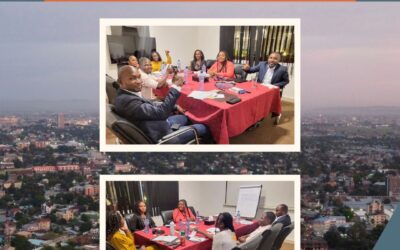Minerals that come from the eastern Democratic Republic of the Congo turn up in electronics, in light bulbs, batteries and other everyday items. It would be hard to escape our connection to these items, and through them, our connection to slavery and conflict in Congo.
Click here to try our Impact Calculator, to measure how slavery may affect you.
Free the Slaves and human rights organizations in Congo have documented abuses against miners in Congo, including forced labor, debt bondage, and hazardous child labor. Other forms of slavery like the use of child soldiers and the prostitution of children also exist in mining areas.
Read Free the Slaves’ research and findings on slavery in Congo here (PDF).
What can you do about it? Under a new U.S. law (download a PDF of the legislation here), companies are required to tell the Securities and Exchange Commission (SEC) how they monitor the source of their long international supply chain. And the SEC is asking you, the general public, for comments on how this law should be implemented.
TAKE ACTION
You can send a simple message today to the SEC. Here’s how:
- Send an email to rule-comments@sec.gov with this subject line “DF Title XV — Specialized Disclosures” or link to this easy web form.
- In your comments, explain briefly why you care about minerals that come from eastern Congo.
- Explain how you think the law should be enforced. Something along these lines:
The new law requires companies to disclose “due diligence on the source” of conflict minerals originating in the DRC. 15 U.S.C. 78m (p)(1)(A)(i). Due diligence on the source of these minerals must be defined to include a description of efforts to monitor the source of the supply chain for forms of modern slavery and other extreme violations of human rights.
- Tell your friends! Email, Twitter, Facebook this blog post. Do whatever it takes to spread the word.
Thank you for taking action! I’ve been corresponding recently with human rights activists in Congo with whom a colleague and I met while traveling and working in the eastern Kivu provinces this summer. They have mixed feelings about the suspension of the mining trade in those provinces, which was recently imposed by Congo’s President Kabila. Some workers have left the mines and temporarily lost their livelihoods, and there’s some evidence that armed groups are now forcing unwilling civilians into the mines in greater numbers to keep the illicit activities going. At the same time, most Congolese are happy that the new attention from the United States is shaking things up in eastern Congo and creating an opportunity for longer-term changes.
Let’s take advantage of that opportunity to demand immediate action. We can leverage change by asking U.S.-based companies to monitor their supply chains for these abuses, and demand better conditions on the ground — from their own suppliers, from the Congolese government, and from influential governments like the United States.
Keep watching this space for other ways to demand more change that will allow the Congolese to escape from slavery and the other rampant human rights abuses and to begin building their country. And that will allow you and me to use our laptops and cell phones safe in the knowledge that no slave was used somewhere in its production.
Please take action now!
Free the Slaves’ work in Congo is supported by a generous grant from Open Square Foundation.


